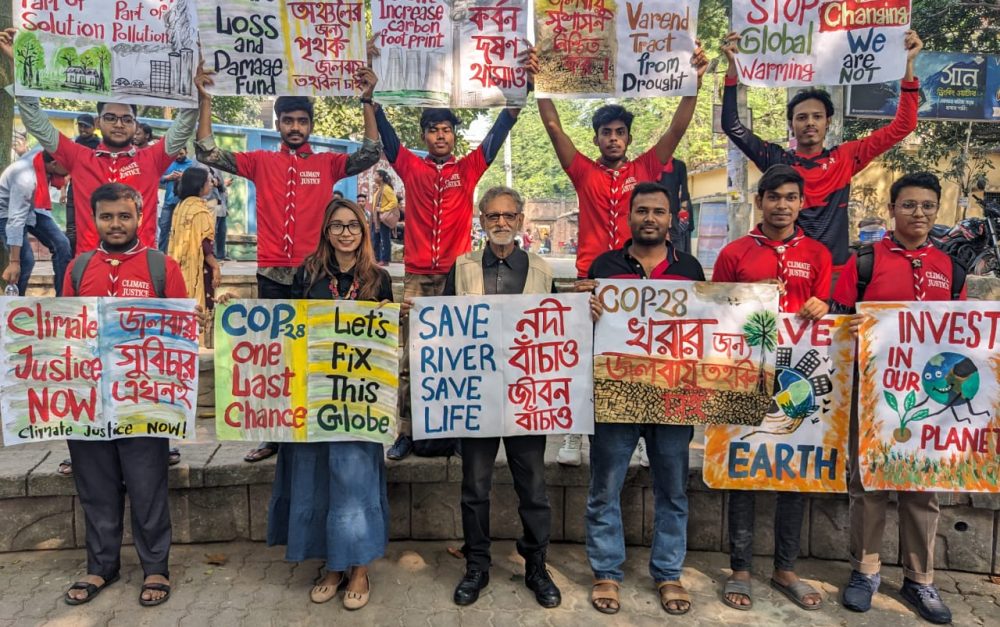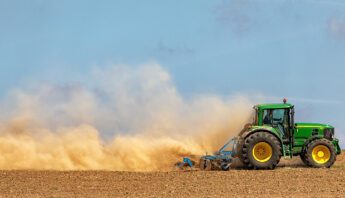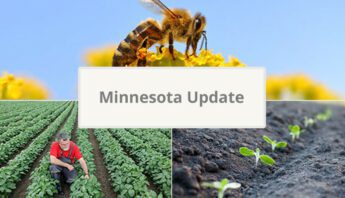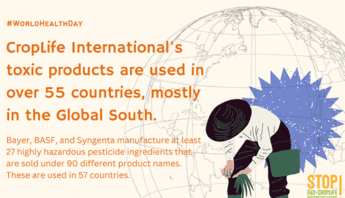Global food systems are expected to take center stage at the United Nations Framework Convention on Climate Change (UNFCCC) Conference of Parties 28 (COP 28), which opened on November 30 and continues through December 12, 2023. This UN climate conference, hosted by the United Arab Emirates in Dubai, presents a key opportunity to wean the world off industrial agriculture reliant on fossil-fueled chemical inputs like pesticides and fertilizers.
With so many industries present at COP28, PAN International is highlighting the risks that false or limited solutions of conventional, corporate-driven agriculture will dominate discussion on food systems transformation. These solutions rely heavily on petrochemicals, pesticides and digital agriculture technologies. Instead, the conference should continue to promote work towards national and global commitments for implementing agroecology principles on a larger scale.
PAN International encourages COP28 to make agroecology a priority
On the opening day of COP28, PAN International Chair Maimouna Diene submitted a Briefing Report on behalf of the network, Food Systems Transformation at COP28: Why agroecology must be prioritized, to all 326 National Focal Points to the UNFCCC.
The briefing opens with the following:
- Agri-food systems generate over a third of total greenhouse gas emissions, with agriculture generating a third of that, including the systematic use of agrochemicals.
- Private and public funding for agriculture primarily supports carbon-heavy, agri-food systems, including industrial farming for global value chains reliant on pesticides.
- Transforming the global food system and its financing is critical for adapting to climate change and preventing further temperature increases.
- Agroecological approaches offer the most significant mitigation and adaptation potential, as well as socio-environmental benefits.
- The IPCC reports that agroecological farming could cut emissions by 2.8 – 4.1 GtCO2e per year – equivalent to 6.8% – 10% of 2021 global energy related emissions – while maintaining productive and equitable food systems underpinning adaptation.
Most parties to the Paris Agreement have already committed to actions that significantly increase investment in agroecology on a larger scale. These actions would reduce pesticide and fertilizer pollution by at least half, and phase out the use of Highly Hazardous Pesticides (HHPs). These commitments can be found in complementary UN agreements (including the Kunming-Montreal Global Biodiversity Framework, and the new Global Framework on Chemicals).
The COP28 Presidency’s Food Systems and Agriculture Agenda is encouraging governments to align national food and agriculture reforms with the legally-binding Paris Agreement by 2025. Mandates that came out of the 2015 COP21 Paris Agreement include Nationally Determined Contributions (NDCs) and a National Adaptation Plan (NAP).
The next step, after COP28, is for countries to put into action the mandates built into the NDCs and NAP, and agroecology must be central to their implementation.
Those most impacted by climate change push for agroecology
These demands are echoed by those most affected by the climate crisis: rural peoples in the Global South. Yet, these individuals and communities are not typically given a voice in UN climate talks. The Global People’s Caravan for Food, Land and Climate Justice has been bringing together rural peoples and communities to discuss their shared vision for policy directions on food, land and climate justice. And, their ideas show a stark contrast to the future charted out by big corporations, often at the expense of these communities.
The Caravan amplifies the demands of rural peoples’ – who feed the world – to address the climate crisis:
- Transform food systems away from fossil fuels.
- Move food and farming systems toward agroecology and people’s food sovereignty.
- End corporate monopoly over land, water, and natural resources.
- Polluters must pay for climate crisis destruction.
- Ensure genuine participation of rural peoples in climate policy.
The Caravan, co-organized by PAN Asia Pacific and kicked off in the Philippines, has been organizing actions, community consultations, and caravans in various countries for the past several months. As a result, the Caravan has organized a petition addressed to COP28 policymakers and negotiators calling for the transformation of fossil fuel dependent food systems to agroecology as a climate solution. The petition also calls for a stop to land and resource grabs in the name of false climate solutions. The Peoples Caravan will deliver this petition to policymakers at COP28, and present it at the Rural Peoples’ Speak-Out during the conference.
Read, sign-on, and share the petition!
Agroecology now!
The PANAP delegation at COP28 is bringing PAN’s recommendations and rural peoples’ demands to government leaders, negotiators and UN policymakers across the world. This movement will not let Big Ag corporations use the climate crisis to consolidate their control, delay fossil fuel phaseouts, or capture the agenda for global food systems transformation. This delegation stands for just, equitable, healthy and sustainable food systems – agroecology now!
For updates on the People’s Caravan at COP28, follow @ourfoodsystems on Facebook, Twitter/X & Instagram.
Image courtesy: Global People’s Caravan / BARCIK








